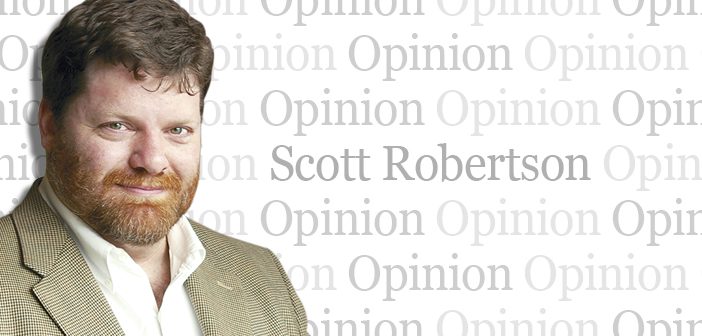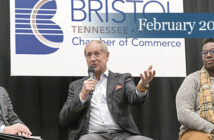S
ince you are reading a business publication, let us, for the purposes of this column, assume you own or manage a business – or are working toward that end, and therefore are already aware of the difficulties involved in finding, hiring and keeping a qualified workforce.
In recent years we have written about local employers’ difficulties finding workers who check several boxes: communication and other soft skills, situational analysis and problem solving, physical and mental health and drug-free lifestyle, to name but a few. I am here to tell you those difficulties affect our business just as much as yours.
You may have read in this space last month that I recently attended a conference of business publication editors, publishers and sales managers. One conversation I found fascinating focused on the ways in which editors separate the wheat from the chaff in hiring writers.
I have moved away from the standard interview process over the years into a more conversational approach to interviewing writers*. I think Marcel Proust had it right when he devised a parlor game with questions to reveal each of his guests’ true nature. As one local executive who handles hiring for a major employer said to me recently, “You can learn a lot just by listening.”
That’s what I reckon too. Apparently I’m not the only one who reckons that way.
Andy Owens, who edits the Charleston Regional Business Journal in South Carolina, shared with the editors at the conference a questionnaire he has written to divine not only whether writers are able to communicate clearly, but also to force them to reveal elements of their personalities, including how they react in uncomfortable situations.
I won’t share it in its entirety, mainly because it’s another writer’s work, and I respect that. But I would like to give you just a taste of some paraphrased questions, in case you might be inspired to add a few new queries to your own hiring process.
• Do you prefer to work far in advance on a long project, or do you do better work against a deadline?
• Here is a list mixing five traits and five skills. Rank your traits and skills from 1 to 10 (with 10 being best) – USE EACH NUMBER ONLY ONCE
___Attention to Detail
___Communication Skills
___Diligence
___Initiative
___Judgment
___Leadership Skills
___Organization Skills
___Problem Solving Skills
___Speed
___Other Skill________________________
• What was the last book you read? What did you dislike about it?
• What is the most important work you have ever done? What made it important?
• In the list of traits and skills above, cite an example of your top trait or skill having made a difference in your previous work.
• What trait do you appreciate most in a co-worker? In a manager?
• What trait do you most dislike in a co-worker? In a manager?
• What one thing did you learn in your last job that you believe will make the greatest difference in you being better at your next job?
I use a couple of Proust’s questions in talking with writers…
• Which words or phrases do you most overuse?
• If you could change one thing about yourself, what would it be?
…And I paraphrase a few as well.
• Who, in our profession, do you most admire?
• What is your greatest professional regret?
• In what job to date have you been happiest?
Finally, I use a few questions of my own.
• Finish this sentence: In our line of work, I believe the first commandment is, “Thou shalt not…”
• What do people who like you have to say about you?
• What do people who don’t like you have to say about you?
• If you’re having a problem doing something right, is your first inclination to:
A) ask a supervisor for instruction
B) ask a co-worker for help
C) Google it
D) keep trying to figure it out yourself by trial and error
E) do something else for a while, then come back to it
F) other _________________________
These questions all go toward checking those boxes we mentioned above. If you have similar questions you don’t mind sharing, post them to our facebook page.
* While always avoiding questions that might force an interviewee to reveal his or her age, race, national origin, gender, religion, marital status and/or sexual orientation, of course.




